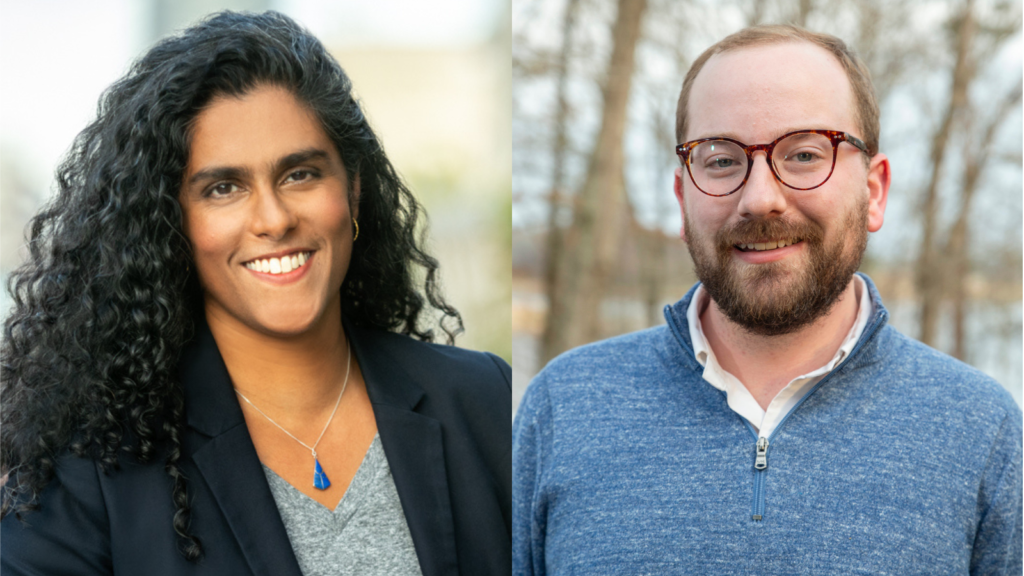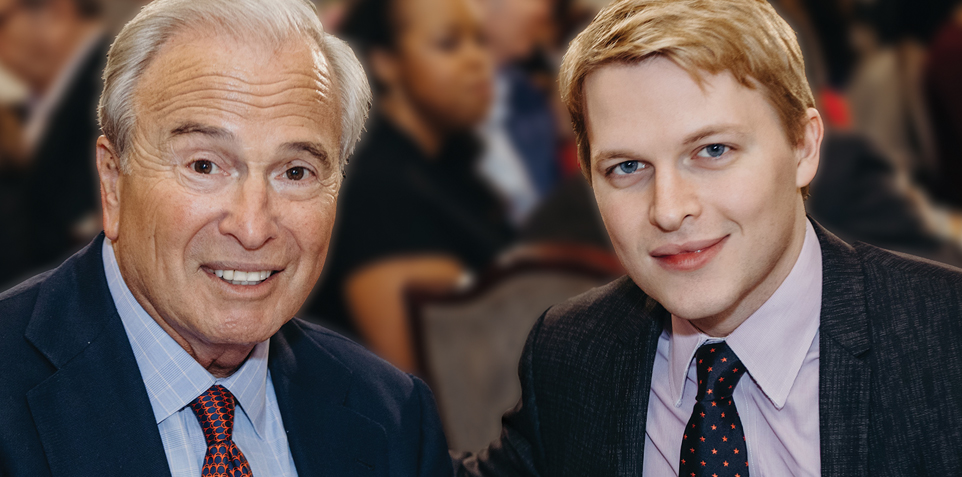
Meghna Chakrabarti, host and editor of “On Point,” and Adam Ganucheau, editor-in-chief of Mississippi Today Join the Livingston Awards Judging Panel
Wallace House Center for Journalists welcomes the addition of Meghna Chakrabarti, host and editor of WBUR’s “On Point,” and Adam Ganucheau, editor-in-chief of Mississippi Today, to the Livingston Awards regional judging panel. They will join our esteemed regional and national judges in identifying the best reporting and storytelling by journalists under the age of 35.
Chakrabarti is the award-winning host and editor of “On Point,” a weekday radio show produced by WBUR in Boston and distributed by American Public Media. “On Point” has been frequently recognized for excellence in journalism under Chakrabarti’s leadership, reporting on the economy, health care, politics and the environment. She previously served as the host of “Radio Boston,” WBUR’s acclaimed weekday local show, and “Modern Love: The Podcast,” a collaboration of WBUR and The New York Times. Chakrabarti holds a master’s degree from Harvard University and an MBA with honors from Boston University.
Ganucheau is the editor-in-chief of Mississippi Today, Mississippi’s largest newsroom. He was the lead editor of the 2023 Livingston Award and Pulitzer Prize-winning investigation “The Backchannel,” exposing high-profile players’ roles in the state’s welfare scandal. He previously worked as a staff reporter for Mississippi Today, AL.com, The Birmingham News, and the Clarion Ledger. His work has appeared in The New York Times, The Washington Post and the Atlanta Journal-Constitution. Ganucheau earned his bachelor’s degree in journalism from the University of Mississippi.
The regional judges read all qualifying entries and select the finalists in local, national and international reporting categories. In addition to Chakrabarti and Ganucheau the regional judging panel includes Molly Ball of The Wall Street Journal; Stella M. Chávez of KERA Public Radio (Dallas); David Greene of Fearless Media; Stephen Henderson of BridgeDetroit, WDET public radio and Detroit Public Television; and Amna Nawaz of “PBS NewsHour.”
The national judges read all final entries and meet to select the Livingston winners in the local, national and international reporting categories and the Richard M. Clurman recipient, an award honoring a senior journalist for on-the-job mentoring. The national judging panel includes Raney Aronson-Rath of PBS; Sewell Chan of The Texas Tribune; Audie Cornish of CNN; Matt Murray of News Corp; Lydia Polgreen of The New York Times; María Elena Salinas of ABC News; Bret Stephens of The New York Times; and Kara Swisher of New York Magazine.
Now Accepting Entries
The Livingston Awards are now accepting entries for work published in 2023. The entry deadline is February 1, 2024.
About the Livingston Awards
Livingston Awards honor journalists under the age of 35 for outstanding achievement in local, national and international reporting across all forms of journalism. The awards bolster the work of young reporters, create the next generation of journalism leaders and mentors, and advance civic engagement around powerful storytelling. The Livingston Awards are a program of Wallace House Center for Journalists at the University of Michigan, home to the Knight-Wallace Fellowships for Journalists and the Wallace House Presents event series.













